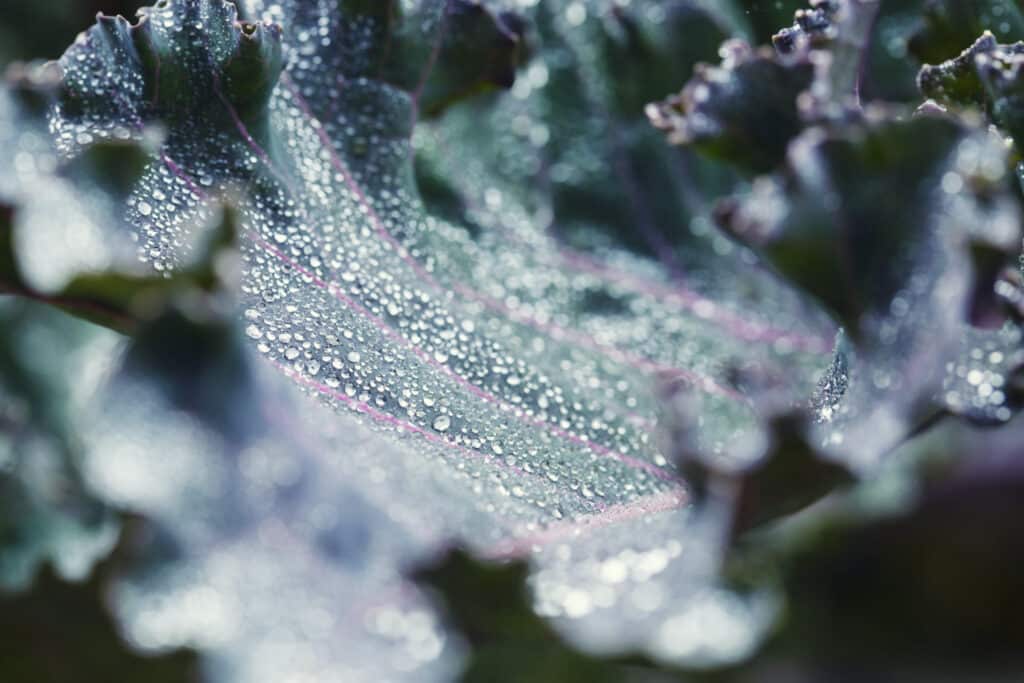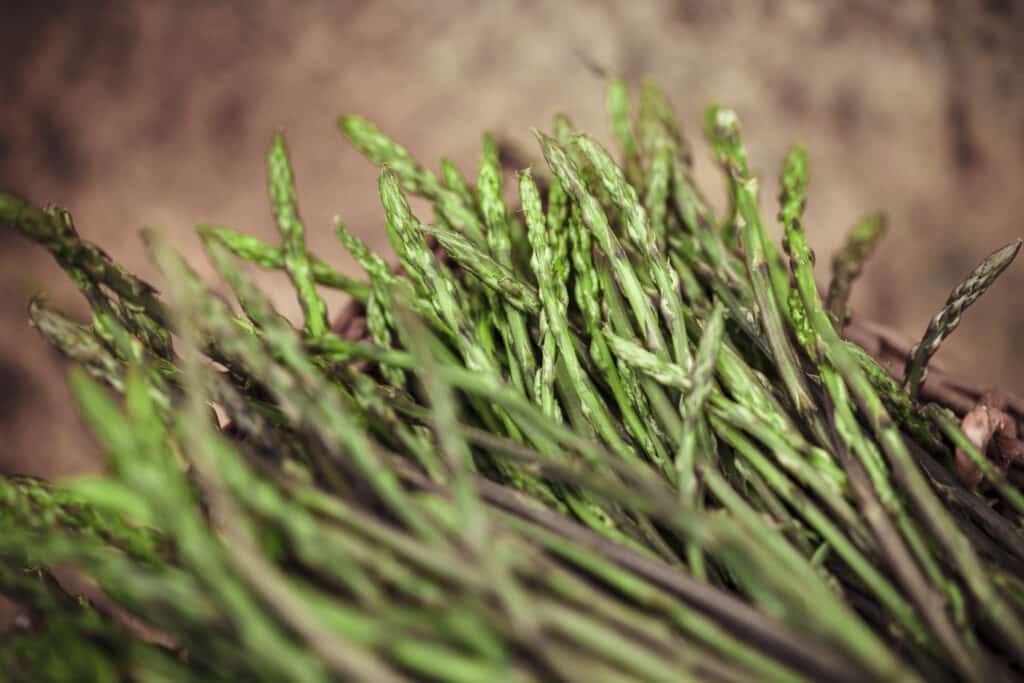Vegan and vegetarian may not be the diet of choice for most in Croatia. However, it is becoming increasingly popular – especially among younger generations. Around 4 per cent of the population is estimated to be vegetarian.
- Vegan and vegetarian products in Croatia
- What to eat in Croatia
- Local green markets
- Vegan and vegetarian restaurants in Croatia
- Eating out at non-vegetarian/vegan places
- Vegetarian and vegan accommodation in Croatia
Croatian cuisine is largely centred around meat or fish. Nonetheless, there are a lot of traditional recipes that are based mostly on vegetables, pasta and legumes. Around 4 per cent of the population is estimated to be vegetarian. A lot of veggie-loving visitors have found that the country actually has a lot to offer when it comes to vegan and vegetarian food options.
Vegan and vegetarian products in Croatia
The availability of vegan and vegetarian products seems to follow suit. Vegan favorites, such as hummus, tofu and non-dairy milk have now become easy to find. It’s even possible to find a range of vegan products at regular grocery stores. That being said, if you want to be sure you’ll find what you’re looking for, it’s always safer to go to the bigger stores which are a part of one of the major grocery store chains.
Croatian health food chain Bio&Bio is now present in all major cities and also has a online store. They sell pretty much everything you might need, from dry products, healthy snacks, and condiments, through fresh organic vegetables, all the way to drinks and vegan cosmetics. Other health food stores and chains include Greencajg, Tvornica zdrave hrane (Health food factory), Garden, and Priroda i društvo. Most of them have webshops.
When it comes to cosmetics, drugstore chains DM and especially Müller usually offer some vegan and organic options.
What to eat in Croatia
Although Croatian cuisine relies heavily on meat or fish as the centrepieces of all family dishes, there are actually quite a few traditional dishes that are vegetarian or even vegan.
Štrukli are a northern Croatian favourite, made of dough and usually filled with cheese. Then there’s bučnica, a pie with pumpkin and fresh cheese, and a bunch of other pies with fillings such as spinach or potatoes.
Traditional continental winter dish “krpice sa zeljem” is a type of pasta combined with sauteed cabbage… Which tastes a lot better than it sounds, promise! Other continental staples include sataraš and đuveč – stew-like vegetable dishes usually served as sides. Istrian maneštra can be vegetarian. If you happen to be in Istria during the spring, make sure you have some of their amazing specialities made with wild asparagus.
One product that vegetarians and vegans lose their mind for when visiting south-east Europe is definitely ajvar. Although most vegans and vegetarians will instinctively use it as a spread, Croatian people mostly see ajvar as a condiment to be used alongside, for example, grilled meat. Usually made from red bell peppers and eggplants, it comes in more or less spicy versions.
In Dalmatia, don’t miss soparnik, a local authentic dish. Other than that, there will be numerous meals made with blitva (swiss chard), raštika (collards) and other green vegetables. Just make sure that meat wasn’t added during preparation!
 Photo by Marc Rowlands
Photo by Marc Rowlands
Check out some more tips on traditional Croatian dishes that happen to be vegetarian.
Local green markets
You know what can be even better than eating out, though? Buying fresh, locally produced veggies at the market and making them yourself. This is the best part of the vegetarian and vegan lifestyle in Croatia.
You’ll find green markets in pretty much every town, with large cities having a market in most bigger neighbourhoods. In Zagreb and northern Croatia, you should look for “plac”, in Split for “pazar”, and elsewhere it’s probably going to be “pjaca” or “tržnica”. Most of them open very around 7 in the morning and only work till sometime between noon and 2 pm. It’s important to remember that you need to get there early to get the good stuff.
Food on the green markets should largely be locally produced, and some of it is also organic. Therefore, the offer is going to be seasonal and vary between times of the year. It’s always good to know which vegetables are in season in certain regions, especially if you’re looking to find the best products and avoid the greenhouse-grown ones.
The Importance of OPG
An important term to know is “OPG”, which stands for “obiteljsko poljoprivredno gospodarstvo” or “family farm”. A lot of stands at green markets will proudly flaunt their “OPG” certificates as they offer products from family farms, ranging from vegetables to honey and cosmetics.

Apart from getting raw materials for your cooking session, green markets are also great places to get supplies for your day trips, such as fruits, nuts, dried fruits or cookies.
Finally – if you can – make going to a green market into an experience. For Croatian people, going to the green market isn’t just about buying fresh, locally produced food. It’s also very much about getting a coffee, meeting a friend, or perhaps even spontaneously going for an early lunch.
If you’re looking for inspiration on what to cook, check out the recipes by some popular local food bloggers.
Vegan and vegetarian restaurants in Croatia
Make sure you do your research ahead of coming to any destination in Croatia. It will make things a lot easier and your stay more pleasant. Happy Cow has some information on vegan and vegetarian restaurants. Veganopolis is also a good resource.
Zagreb
For years, Zagreb’s vegan and vegetarian dining scene were dominated by only a handful of options. The most popular were Vegehop and Zrno, an organic vegan restaurant sourcing the ingredients from their own farm. More non-carnivore places have started to pop up in recent years, though. Zagreb now displays a pretty decent set of dining options for veggie-lovers. Some of them include Gajbica, Simple Green and Trešnjevka’s Barcode Mitra with a popular burger selection. There’s even a festival dedicated to eating vegetarian and vegan, called ZeGeVege Festival. Additionally, in downtown Zagreb you’ll find a cake and pastry shop specialized in vegan, gluten-free and lactose-free desserts. It’s called Vis a Vis, and is owned by one of the traditional cake shops in Zagreb, Vincek.
Ethnic food restaurants are also worth a shot, with places like Byblos or Lazeez offering excellent falafels. There are also options for those too busy exploring downtown Zagreb to have a proper sit-down lunch. They can always grab something to eat on the go from places such as Koykan, Green Point and Good Food.
Istria
When it comes to Istria, most restaurants will have something for vegan and vegetarian guests. Artha in Poreč, Tipico Green Garden in Rovinj and Fresh in Pula are known for offering some vegetarian and vegan options.
Dalmatia
With new places springing up across town, Split is shaping up to become Croatia’s new vegetarian & vegan capital. Notable are Kat’s Kitchen Deli, Marta’s Veggie Fusion, Upcafe, Pandora GreenBox, VEG and MakaMaka. The nearby islands are following suit, too, thanks to spots like Biomania in Bol, Brač.
As one of Croatia’s most popular destinations, Dubrovnik also offers some decent vegan options. Don’t miss Urban & Veggie and the acclaimed Nishta (“Nothing”) restaurant which used to have a branch in Zagreb.
Slavonia
Proud of its cured meat specialities and untouched by mass tourism, Slavonia might prove to be a bit of a challenge when it comes to vegan and vegetarian food. But don’t let that turn you away from visiting this fascinating region. Just be ready to negotiate a meat-free dish at traditional restaurants, which will in the end probably not disappoint.
Eating out at non-vegetarian/vegan places
There are vegetarian and vegan restaurants in most bigger cities. However, if you are spending your holiday away from the main urban hubs, cooking might be a better option than trying to negotiate that cheeseless pizza at an unassuming local establishment.
If you do end up going to a non-vegetarian restaurant, make sure to bring your patience. In a lot of traditional places, the staff still struggle to understand this whole non-carnivore thing. Don’t even expect them to understand the distinction between vegetarian and vegan diet. Oh, and you are likely to be served jokes along the lines of “No meat? Okay, then chicken for you?” Ugh…
They will probably have some sort of vegetable risotto or vegetarian pasta, though. Just check that the pasta is vegan – in case it’s home made or coming from a small producer, it might not be vegan. But this is not something to worry about at most places that aren’t particularly ambitious about their menu.
Grilled Veggies and Pizza to the Rescue
Grilled vegetables are a common side dish in traditional restaurants; take note that the portions are usually small and there is a high probability that the veggies were grilled together with meat. Some salads, such as šopska salad, have cheese in them – just a heads up to vegans glancing the side dish section.
A dish you can get pretty much anywhere is pizza. Pizza toppings in Croatia are mostly traditional and Italian-influenced, with a local twist. Vegetarian pizza is a menu staple, but if you want a pizza without cheese, that will probably require a special request.
Coffee? Bakeries?
The default coffee served in all the cafes across Croatia is espresso. There’s nothing to worry about there as long as you don’t specifically order coffee with milk (“kava s mlijekom”). Very few traditional cafes and restaurants will have non-dairy milk. Luckily, there are more and more hip and speciality coffee places opening up across the country that offer more options for vegans and the lactose-intolerant.
Another thing: BAKERIES. They are literally everywhere, especially in the big cities. While they offer plenty of vegetarian options, vegans should bear in mind that a lot of Croatian pastry is not vegan.
Vegetarian and vegan accommodation in Croatia
Vegetarian and vegan hotels and B&Bs are still quite a novelty in Croatia’s tourist offer, but there are some accommodation options focused on non-carnivore cuisine and products. Some of them include B&B Bajlo house in Zadar, hotel Balatura in Tribalj near Rijeka, Sun of Istria apartments in Rovinj or hotel and camp Korinjak on the island of Iž. Vegan B&B Barabrith near Karlovac is less than an hour drive away from Plitvice Lakes National Park.









